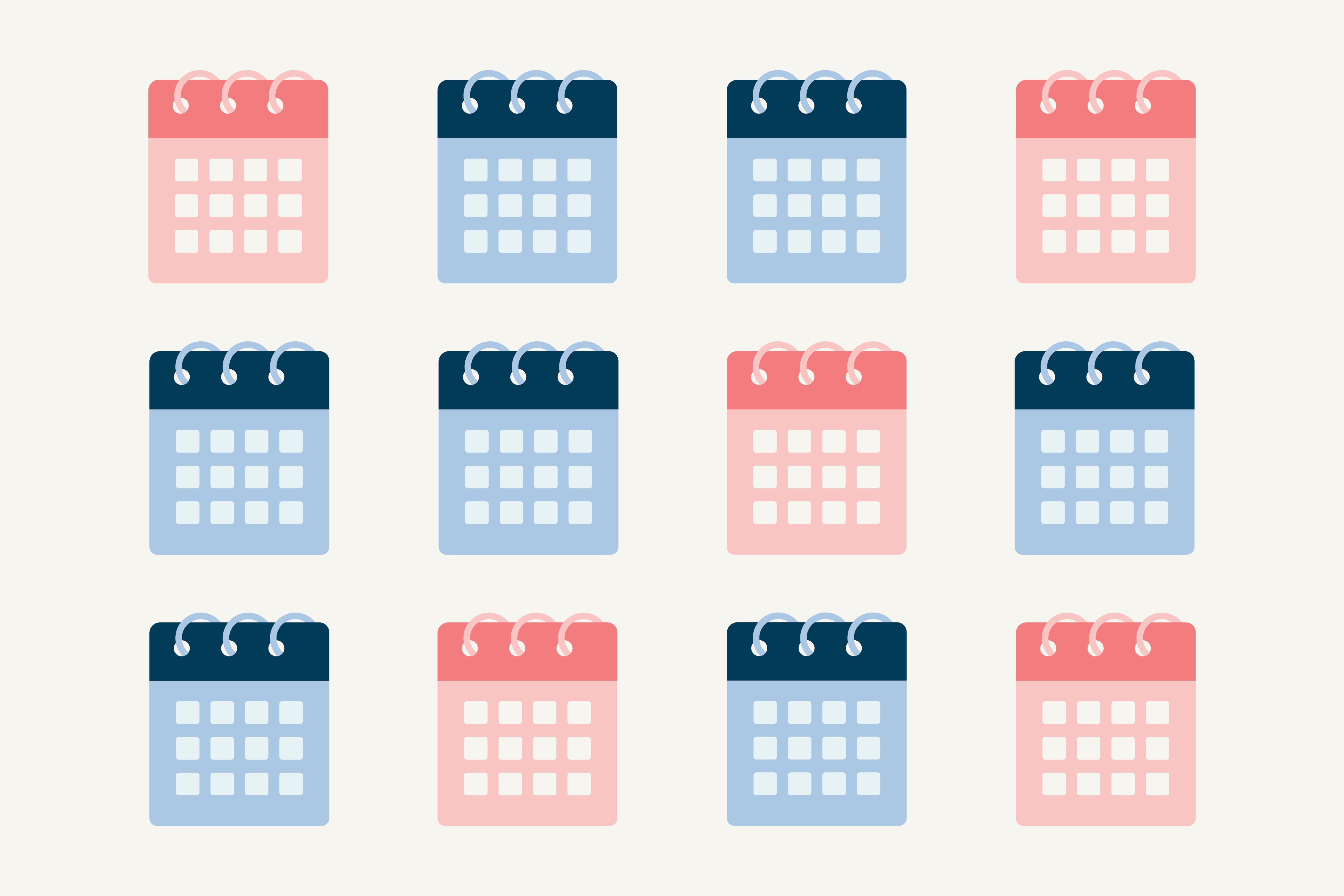- Expert advice/
- Relationship advice/
- Newly engaged couples/
- How to Handle a Long Engagement
- Newly engaged couples
How to Handle a Long Engagement
Find out our top tips and advice on how to handle a long engagement with this comprehensive guide. Read on to learn more today.
Last updated February 5, 2024

The First Look ✨
- Take advantage of the additional time, and tune out the social media noise in order to bring your true self to your wedding planning.
- Figure out your wedding planning pace, whether it’s frontloading all your tasks early or parceling them out over several phases.
- Forget the normal order of things, and be open to doing important things first before your big wedding.
The global pandemic has changed virtually everything when it comes to planning weddings, including the engagement period. Wedding planners are now reporting seeing longer engagements than the average 12 to 18 months. How can couples best handle being engaged for a protracted amount of time? Now, a longer engagement isn't necessarily a bad thing, it may be exactly what you need to plan your dream wedding and sort out all of your wedding details. Here’s advice from top wedding planners on how to deal with, and strategize effectively for a longer engagement.
Start Early

Take advantage of the additional time as a couple, recommends Oakland, California–based Planner Lea Stafford. “Starting the planning process early allows you to pace yourself and reduce the risk of burnout.” And at the top of your list should be the two most important elements; “I can't say this enough: Securing your venue and planner for 2022 should be your first step,” Stafford stresses. “With the number of 2020 weddings moving to 2021, ideal venue spaces and event services are in demand.” Having this extra time will allow you to consider all the different wedding details before your big day.
Bring Your True Self to Your Wedding Planning
That means resist the urge to fall into a Pinterest or Instagram hole when sorting out your wedding plans. “Please do yourself a favor and limit your time on social media,” says Stafford. “This will cloud your judgment and influence your authentic self.” Instead, seek ideas from connecting with yourself and your favorite people and activities offline. “Spending time in places you love and thrive in will not only be refreshing, but it can be inspiring,” she notes. “Take time to sit with those who mean the most to you: Live, laugh, and share memories. Doing this will contribute to the development of your wedding concept and lead you in the direction of the right event partners to reach out to.”
Figure Out Your Planning Pace
Determine whether you want to do as much as you can early or parcel out tasks over time. “We have found that most of our clients prefer an approach of intense spurts,” says Virginia Frischkorn of Colorado’s Bluebird Productions. “We look to frontload and plan as much as possible while excitement and motivation are still high. We encourage locking in all of the major vendors, as well as design details, as far out as possible. We then like to let our clients get back to their normal life and take time to relax and enjoy each other and family, without the pressures of wedding planning. This time allows them to feel rejuvenated and creates fun anticipation as their wedding nears.”
But, a long engagement period can also allow couples to stretch out the planning process with little tasks each month. Jennifer Price, the owner of Event Shoppe Chicago, developed a five-part schedule that helps prevent planning fatigue. “We try to sneak a little fun into all five of the parts,” Price notes, which keeps up the excitement.
The first part starts strong with venue searches. The second maintains the energy with booking vendors including photographers, makeup artists, and floral designers. The third focuses on event design, which brings the room to life and sets the mood and aesthetic.
The fourth jumps into the details. Price says this tends to be where couples start to feel weary of planning and impatient for the big day. “But the details are super important,” she says, so she injects a bit of fun with an actual mock-up of a guest table, including linens, tableware, florals, and even tastings, with the help of other vendors. This up-close, in-person look at their table is “like a bolt of energy for our couples because they’re like, ‘Yes, this is exactly what we want,’ or they're like, ‘Oh, wait, we thought this was gonna look a lot different in person.’” The final part, the home stretch, six to eight weeks out, involves going through RSVPs and crafting the seating chart, with couples thrilled to find out who will attend.
Price says there’s logic to her schedule, helping couples prioritize what’s important at that point in the process and focus on that before moving to other steps that may hinge on the earlier steps and which may change dramatically as the date moves closer. In the beginning, Price says, couples find it hard to resist looking ahead: “They’re like, ‘This sucks, I want to go [down] a Pinterest rabbit hole and look at escort cards for hours,’” she laughs. “But, always at the end, they're like, ‘Oh, my gosh, this process was so easy.’” And the schedule has been especially helpful during the touch-and-go time of COVID-19: “It helps us gauge your priorities, so if we have to move your date because of restrictions, I know what’s important to you already.”
Make Time for Each Other

“I always tell my couples: Take nights off from wedding planning,” says Amy Shack Egan, founder of Brooklyn’s Modern Rebel. “It can be all-consuming, so it's important to have days and nights were talking about wedding plans is off the table. I recommend hosting a ‘circle the wagons’ once a week to get on the same page about to-dos and divvy up tasks. Then, leave the rest of the days/nights for connecting on your relationship, which will be there for after the wedding is over. Find new ways to connect that remind you that you're still dating and not co-workers.” She recommends Crated with Love, a date-in-a-box subscription service that provides a unique date night. “It's fun and will nourish your relationship, which is so important, especially on a longer wedding planning journey.”
Forget the Normal Order
“Some couples are placing their plans in different orders, buying a house now together and starting a renovation, then wedding after,” says San Francisco Event Planner Ashley Smith. “Or even having a baby first, until they know it's safe to have a wedding. It's not traditional, but they also can't put their lives on hold just to have the wedding—because who knows when that will be. It could be two or three years, in reality.” She’s also worked on many small (two-to-six-person) elopements this year. “The elopement is exciting because you get to legally marry in a normal time frame, but still keep the actual wedding for a later date.”
Consider a Micro Wedding
“We are loving the idea of micro weddings,” says Smith. “Ten to 20 people and doing a weekend-long experience versus a one-day event. We have a few couples that have bought out entire properties, and we are doing a series of outdoor dinners, safe activities, and ceremonies. This has blossomed into a very rich scenario that honestly feels more in tune with what a wedding should be. It's a little slower, more intimate, and offers lots of opportunities to show up, relax, and be present (verses 200 to 500 guests all crammed into one eight-hour event). It also allows us to play with design more. We are doing two or three nights of small dinners/designs, and the budgets work out to be fairly similar to doing one big one. But it feels a lot more special.”
Have a Plan B, and Don’t Panic
Lastly, go into this planning process prepared to pivot slightly. “Have a plan A, your perfect wedding day, and a Plan B, a safe, scaled version of Plan A,” says Stafford. “2020 has taught us that we have to be willing to adapt.”
“In this crazy time of COVID-19, it is very easy to get wrapped up in the what-ifs,” says Frischkorn. “Our suggestion is to be realistic but to not panic unnecessarily. As restrictions tend to change very rapidly, we have seen clients get frustrated having to come back and create a new plan every three months. We suggest waiting to see what is happening closer to the wedding date and reevaluate then.”
Long engagements may very well be part of our new normal. Whatever happens with COVID-19, it’s important to be flexible and have a backup plan. You very likely may not get exactly the wedding that you’ve always dreamt of, but if you’re patient, you may be able to get something just as satisfying.
- Expert advice/
- Relationship advice/
- Newly engaged couples/
- How to Handle a Long Engagement
Find even more wedding ideas, inspo, tips, and tricks
We’ve got wedding planning advice on everything from save the dates to wedding cakes.
